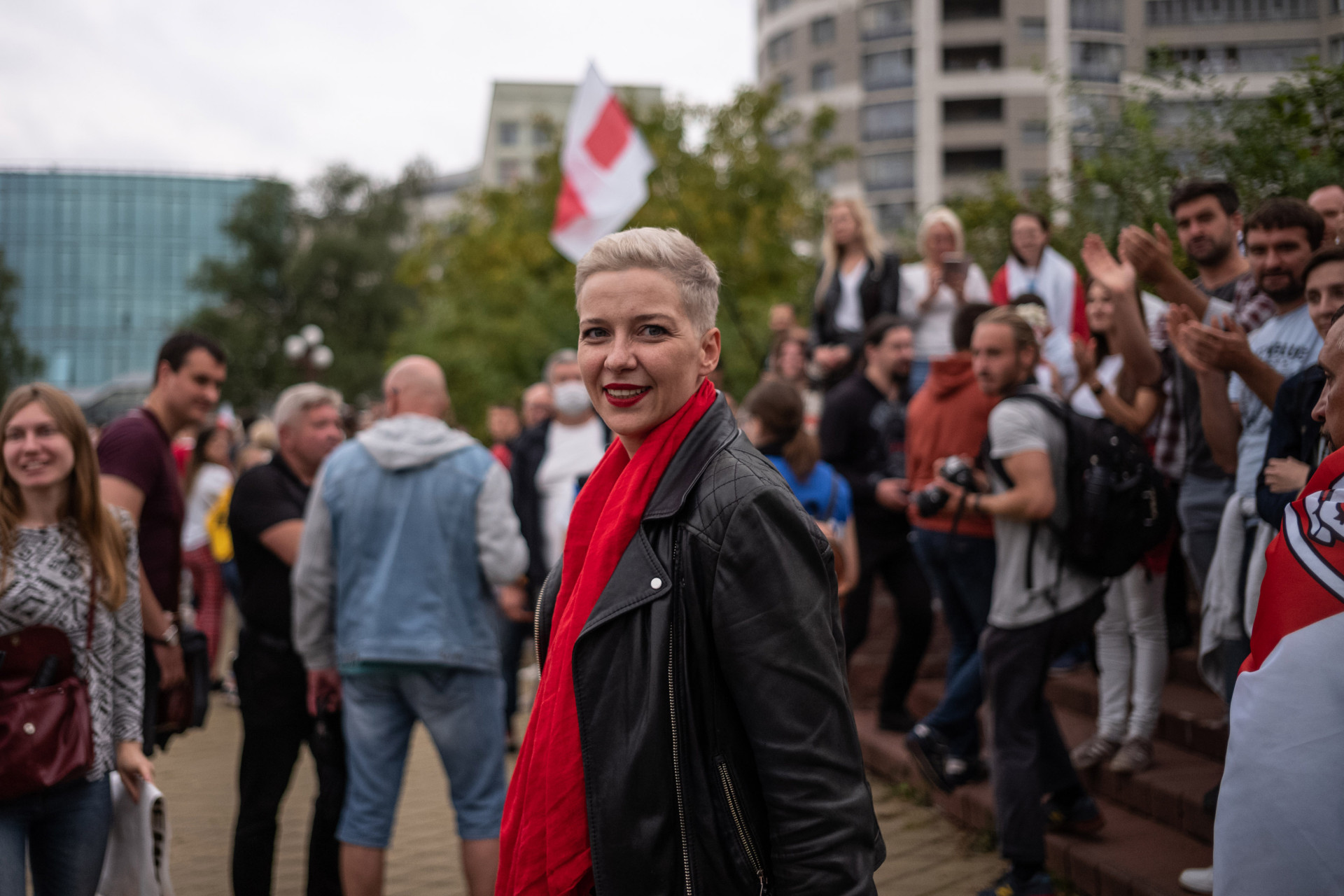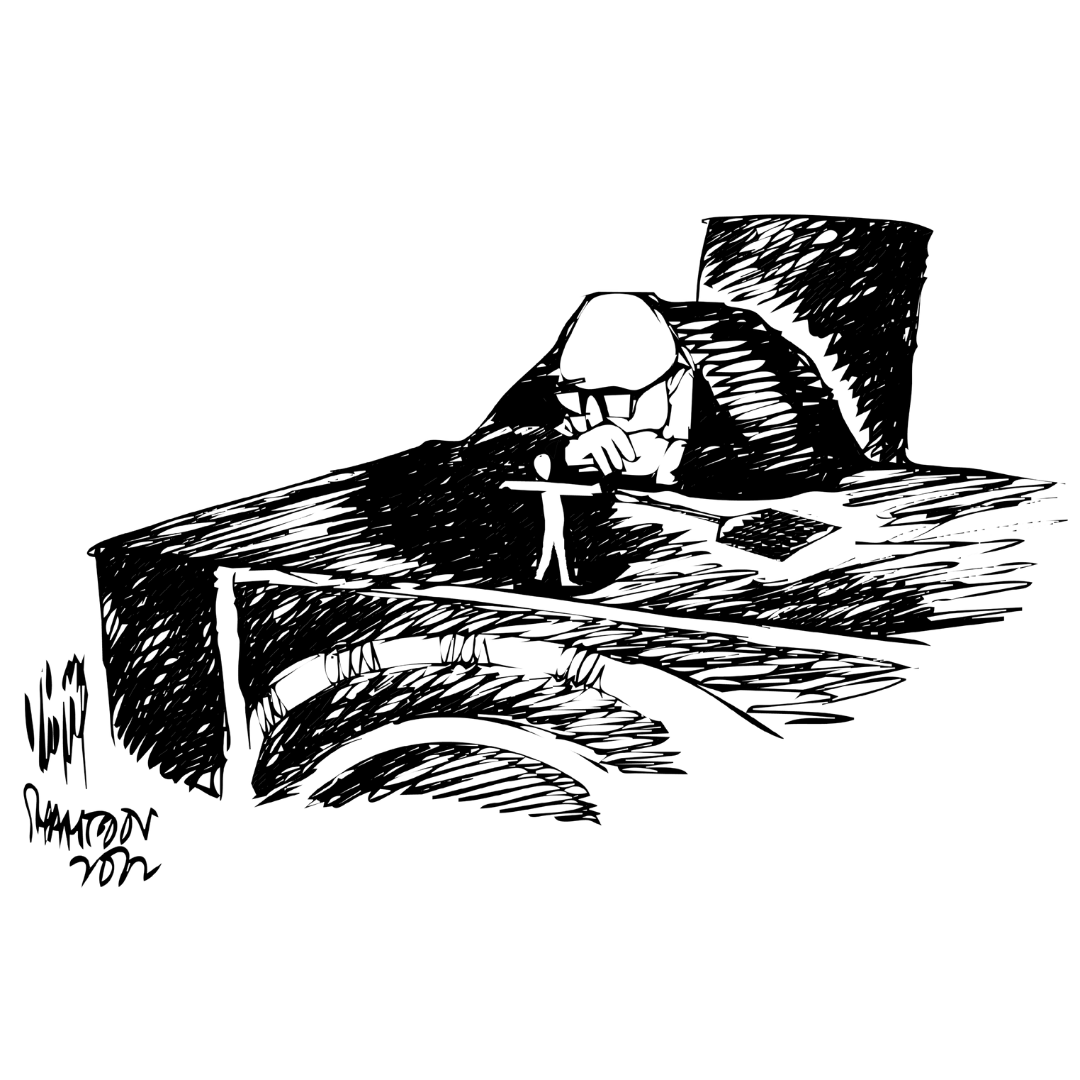
BELARUS
Uladzimir Pylchanka
Uladzimir Pylchanka is a Belarusian lawyer best known for being the defence lawyer of Maria Kalesnikava, one of the three leading female opposition figures who rose to prominence during the 2020 presidential elections campaign in Belarus. Before 2020, Uladzimir Pylchanka worked on criminal, civil and economic cases. Most of the cases he has been working on since June 2020 are viewed as politically motivated by human rights monitors. His clients include presidential candidate Viktar Babaryka’s son and opposition activist Eduard Babaryka, volunteer of Babaryka’s campaign Liavon Khalataran, journalist Iryna Slaunikava, all of whom are considered political prisoners by the renowned Belarusian human rights organization “Viasna”.
VITA
Uladzimir Pylchanka is a Belarusian lawyer best known for being the defence lawyer of Maria Kalesnikava, one of the three leading female opposition figures who rose to prominence during the 2020 presidential elections campaign in Belarus. Before 2020, Uladzimir Pylchanka worked on criminal, civil and economic cases. Most of the cases he has been working on since June 2020 are viewed as politically motivated by human rights monitors. His clients include presidential candidate Viktar Babaryka’s son and opposition activist Eduard Babaryka, volunteer of Babaryka’s campaign Liavon Khalataran, journalist Iryna Slaunikava, all of whom are considered political prisoners by the renowned Belarusian human rights organization “Viasna”.
Maria Kalesnikava in Prison: An Interview with Lawyer Uladzimir Pylchanka
Opposition leader Maria Kalesnikava during an anti-government demonstration in Minsk, Belarus, August 23, 2020;

Maria Kalesnikava in Prison: An Interview with Lawyer Uladzimir Pylchanka
Opposition leader Maria Kalesnikava during an anti-government demonstration in Minsk, Belarus, August 23, 2020;

How would you describe the general detention conditions of Maria Kalesnikava in the colony?
The conditions of Maria Kalesnikava’s detention differ significantly from those of the most convicts. According to her, she experiences increased surveillance by the administration, and registered as a person prone to extremist activities. She has a yellow tag on her clothes, as do other convicts sentenced under certain articles of the criminal code in Belarus.
Does Maria Kalesnikava have access to the outside world or follow the news about her country and the world?
In fact, she gets the news about the events in the world mostly at the meetings with her lawyers. She is aware of what is going on, able to analyse it well, and has in fact surprised me more than once with her ability to foresee certain developments. Today, she rarely manages to read or watch the news, since the schedule of her day is very tight. She is always busy with something and simply does not have enough time.

Can and how often does Maria Kalesnikava talk to her relatives and friends?
Ms. Kalesnikava has the right to have both short and long meetings with her relatives, and in our case, with her father, Aliaksandr Paulavich Kalesnikau. However, the administration of the colony recently imposed two penalties on her; and thus, depriving her of the possibility to have meeting with her father. The first penalty was imposed due to accusation of impolite treatment of an employee of the correctional colony. While the first penalty was being imposed, the administration of the colony saw another offense in her conduct. She was alleged for interrupting the head of the colony during the imposition of the penalty. Therefore, Ms. Kalesnikava was also deprived of her short meeting. Regarding the regular visits, there are three such visits per year, both short and long ones. As for friends and any other Belarussian citizens, she could communicate with them only by letters, but we have received confirmed information that the letters she writes as well as the letters sent to her do not reach their destinations. Nonetheless, the only way of communication that we could consider relatively stable are phone (and video) calls.
Is Maria Kalesnikava given the opportunity to speak to her lawyers? Do you know whether there has been attempts to prevent her from doing so?
She can speak with her lawyers, but not whenever she wants. First of all, there are no separate rooms in the Correctional Colony No. 4 for the convicts to meet their lawyers. The meetings are held in the same room, where short meetings with the relatives of the prisoners take place. If someone else is meeting her relatives, no lawyer is allowed to get access to their clients at the same time. Secondly, meetings with lawyers in the are only allowed upon a written application of the prisoner scheduled for outside working hours. As for the question whether Ms. Kalesnikava is being hindered in her right to meet with her lawyer, I cannot reliably confirm if that has been the case. There has never been a situation, when I was not able to meet her upon my arrival in Homel. However, at times, I could meet her for only 5 or 6 minutes, and that is of course not enough to provide legal assistance. There were also occasions when employees of the colony informed me that they have received no application from Ms. Kalesnikava, although according to her, she always submits such applications in advance.
If you notice that Ms. Kalesnikava’s rights as a prisoner are violated, could you protect her through legal means?
I can only try. For instance, penalties can be appealed which will be then reviewed by a local court. Indeed, I am not aware of any actual appeal cases of a penalty being overturned. All in all, it is possible to appeal against penalties, but we can only express our opinion and position. Only the officials have the power to decide.
Can Maria Kalesnikava make any public statements while imprisoned?
She cannot make any public statements directly. I suppose that, in theory, journalists and broadcasting services could be allowed to visit Ms. Kalesnikava, and she could be allowed to give an interview to them. Convicts have rights and one of those is the right to have an opinion and express it, and it should not be restricted in any way. In practice, however, the only people that she has met from outside the walls of the correctional facility so far are her lawyers. We hope that in the future she will also be able to see her father. We sincerely hope that she would be able to see everyone else as well, hopefully as soon as possible.
Thank you for giving us your time in conducting this interview.
One day after this interview, Mr. Pylchanka informed us that for the first time, he was not allowed to see Maria Kalesnikava after having arrived to the colony. Eight hours of travel and five hours of waiting proved to be in vain. The reason, which was officially expressed to him, was the absence of a free meeting room in the colony.
Belarus
